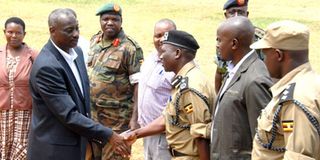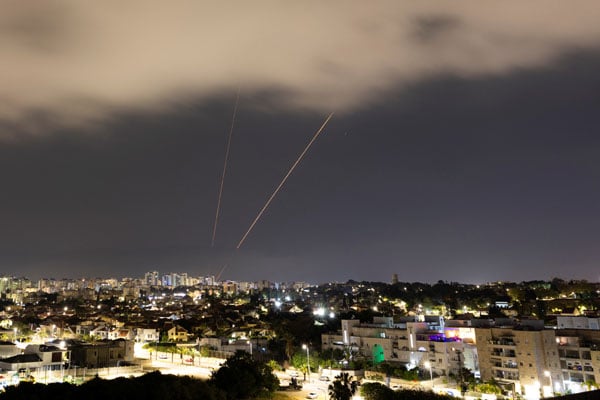NGOs sabotaging oil sector, says government

Security officials welcome Gen Aronda Nyakairima (L) to Bunyoro sub-region last week. PHOTO BY FRANCIS MUGERWA
What you need to know:
Claims. Internal Affairs minister says there are NGOs that are inciting people not to allow compensations in the proposed oil refinery area.
BULIISA/HOIMA
The government is investigating Non-Governmental Organisations (NGO) suspected to be involved in activities aimed at undermining Uganda’s oil and gas industry, the Internal Affairs minister has said.
Gen Aronda Nyakairima, who held a meeting with political, security and administrative officials in Bunyoro sub-region, said leaders have voiced their concerns over some NGOs said to be undertaking activities for which they were not registered to implement.
The former Chief of Defence Forces held a day-long closed door meeting with the leaders at a hotel in Hoima District recently. This newspaper has learnt that the leaders discussed a range of issues including immigration, forest encroachment and oil operations.
“Some NGOs are reported to be instigating people not to allow government to compensate them in the area where government intends to set up a refinery. We find that disturbing,” Gen Nyakairima told journalists last week after opening a training facility for immigration officers in Butyaba Sub-county in Buliisa District. He said the Internal Affairs ministry will investigate them before taking appropriate action. “If we find them to have conducted activities for which they were not registered, we may consider withdrawing their licenses,” he said without naming any of the NGOs being probed.
The National NGO Forum welcomed the probe, but cautioned the government against using it to intimidate NGOs pushing for transparency and accountability in the oil and gas sector.
During the closed-door meeting, Bunyoro leaders reportedly voiced their concerns protesting the alleged influx of immigrants into the region. Gen Nyakairima confirmed to the media that indeed the matter was tabled. He said it was noted that whereas there are some Congolese who come into the region legally as refugees, there are also those who illegally cross Lake Albert and come into the region.




